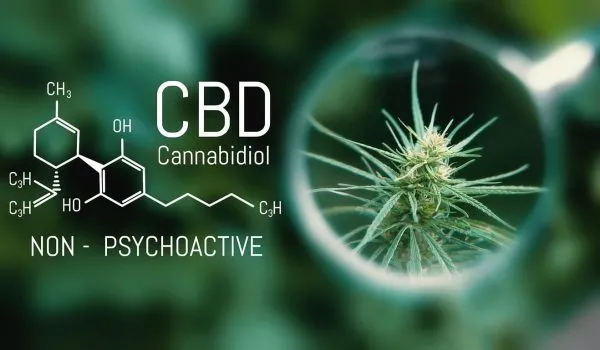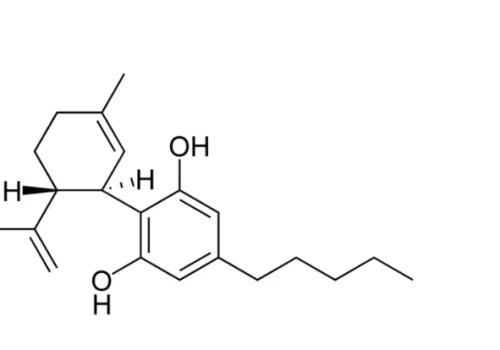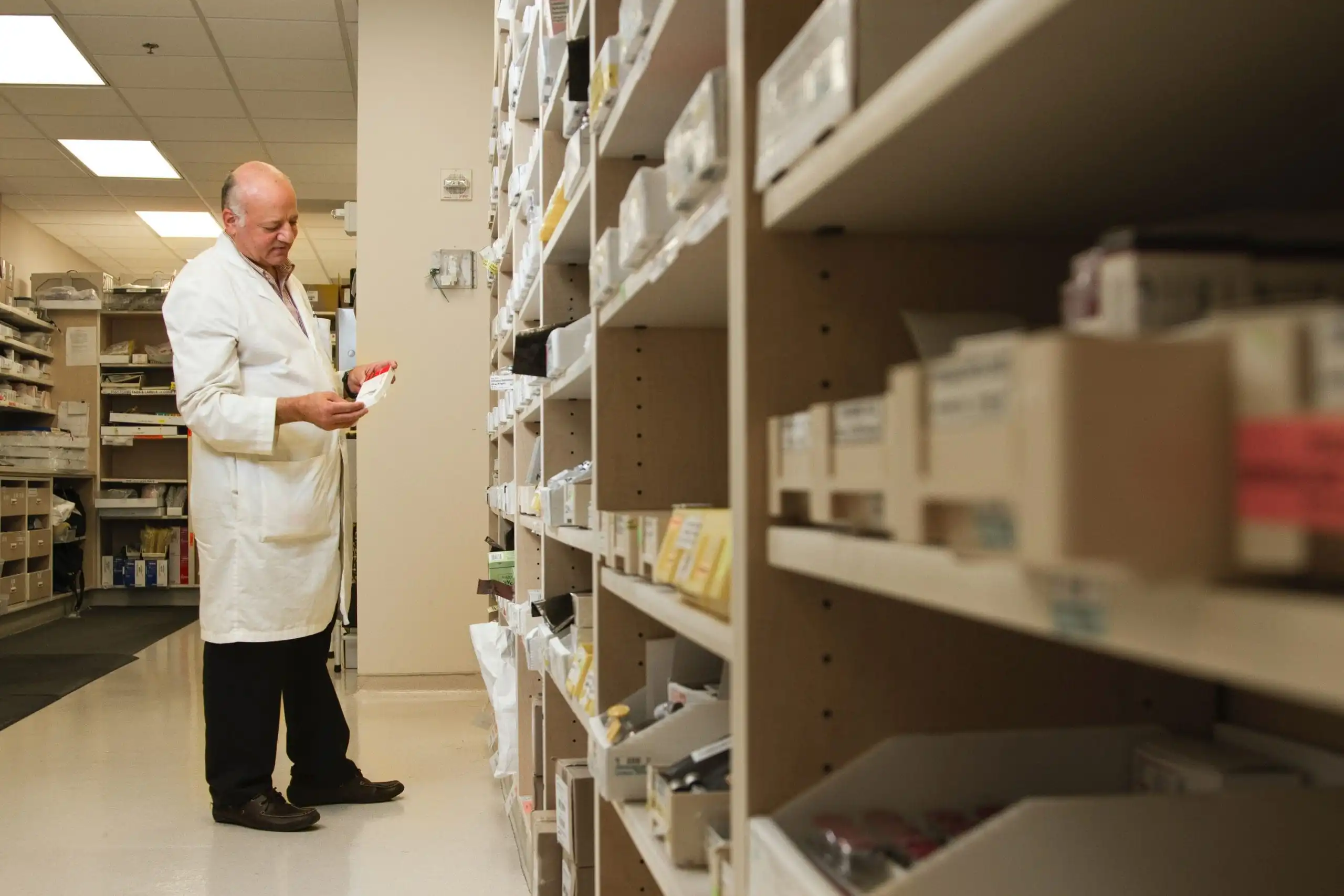
Cannabidiol (CBD) powder is isolated CBD derived from the cannabis plant. Converted to a powder form, it can be taken orally, used in cooking, or included in cosmetic preparations.
Cannabidiol is one of dozens of cannabinoids found in the cannabis plant that also include:
- CBGA (Cannabigerolic acid)
- THCA (Δ9-tetrahydrocannabinolic acid)
- CBDA (Cannabidiolic acid)
- CBCA (Cannabichromenenic acid)
- CBGVA (Cannabigerovarinic acid)
- THCVA (Tetrahydrocanabivarinic acid)
- CBDVA (Cannabidivarinic acid)
- CBCVA (Cannabichromevarinic acid)
Cannabidiol Mechanism of Action
CBD works by stimulating endoplasmic reticulum (ER) stress while inhibiting AKT/mTOR signaling with results that included apoptosis (self-destruction of some types of cells) and autophagy (self-digestion of a cell by the action of enzymes within the same cell). Additionally, CBD augments the generation of reactive oxygen species, which can further strengthen the process of apoptosis.
CBD also upregulates the expression of tissue inhibitor of matrix metalloproteinases-1 and intercellular adhesion molecule 1 while decreasing the expression of an inhibitor of DNA binding 1. This process inhibits cancer cell metastasis and invasiveness. CBD may also augment the uptake of various cytotoxic agents in cancer cells through activation of the transient receptor potential vanilloid type 2. The binding of this agent, along with the activation of CB1, accounts for CBD’s analgesic effects.

CBD Interaction with the Nervous System
CBD works with the endocannabinoid system – a part of the nervous system that interacts with various parts of the body through the peripheral nervous system. Unique neurotransmitters within the endocannabinoid system – called endocannabinoids – send messages between neurons that interact with endpoints called receptors.
Endocannabinoids are cannabinoids that are produced internally while external cannabinoids such as phytocannabinoids found in the cannabis plant can mimic their effects. These include a variety of physiological and cognitive processes that include feelings of pain relief, wellbeing, mood and memory. This is accomplished through the following interactions:
Get your requested raw materials quotation
Increased GABA activity
GABA (gamma-aminobutyric acid) – a key neurotransmitter – promotes relaxation and slows down the nervous system. It helps to reverse the effects of extreme stress by lowering blood pressure, calming the mind, and assisting the body in preparing for sleep. GABA dysfunction has been attributed to issues with anxiety, insomnia, digestive problems, and compromised immunity.
CBD has not been shown to activate GABA receptors, however it can act as a modulator that promotes the binding of GABA to its receptors. This is a similar mechanism to many prescription and anti-anxiety medications such as Valium, Xanax, and Klonopin.
Increased Endocannabinoid Levels
CBD is thought to work in opposition to fatty acid amide hydrolase, an enzyme that breaks down endocannabinoids inside our cells. This is suspected to create a “balancing mechanism” that achieves homeostasis.
Vanilloid Pain Receptor Activation
CBD is thought to activate TRPV1, widely known as the Vanilloid receptor due to its similar effects to the vanilla bean. This action is considered to mediate the perception of pain, body temperature and inflammation.
Get your requested raw materials quotation
Full-Spectrum vs. Isolate CBD Powder
Terms like “pure CBD powder” or “natural CBD powder” typically refer to specific cannabinoid concentrations in their respective formulations.
CBD Isolate
CBD isolate is produced by extracting only CBD from the cannabis plant. This is considered to be the purest form of CBD without any other components of the cannabis plant, including other cannabinoids, terpenes or flavonoids.
Full-Spectrum CBD
“Full-spectrum” CBD refers to products containing all the compounds found in the cannabis plant, including all the cannabinoids, terpenes and essential oils. Most cannabinoids found in full-spectrum formulations include:
Tetrahydrocannabinolidiol
Tetrahydrocannabinolidiol is the psychoactive component of the cannabis plant that is typically associated with euphoric or “high” sensations.
Cannabinol
Cannabinol is produced when THC degrades during the storage process. CBN is considered to have milder psychoactive effects than THC, and typically increases when exposed to light and air.
Cannabigerol
Cannabigerol is classified as non-psychoactive and may contribute to the overall positive effects of ingesting the cannabis plant.
Tetrahydrocannabivarin
The tetrahydrocannabivarin cannabinoid is found in some strains, including those from central Asia and southern Africa. Along with cannabinoids like CBD, tetrahydrocannabivarin is suspected of lessening THC’s psychoactive effects.
Cannabidivarin
Cannabidivarin is a non-psychoactive cannabinoid with a similar structure to CBD. It is found in small amounts, typically in wild cannabis plants from the northwest Himalayas.
Cannabichromene
Cannabichromene is a non-psychoactive cannabinoid, typically thought to have anti-tumour effects.
The “Entourage Effect”
Full-spectrum CBD products produce what is widely known as an “entourage effect“, consisting of the impact of all the cannabinoids working together.
Synthetic CBD
Synthetic CBD is a form of CBD that is made artificially in a laboratory. Also known as H2CBD, interest in manufacturing CBD has grown as a result of the creation of CBD-based pharmaceuticals such as Epidolex. While the production of synthetic CBD has had some traction, studies have shown that it does not have the same effects as natural CBD.
Conditions Treated with CBD Powder
CBD powder has been used as a treatment for a wide variety of conditions, including epilepsy, PTSD, panic attacks, skin conditions, insomnia, anxiety, cancer and fibromyalgia.
Inflammation
CBD is considered to have potent anti-inflammatory effects. With inflammation being at the root of many diseases, CBD is considered to be effective for treating pain-related symptoms associated with many conditions.
Anxiety
A 2019 CBD study revealed that 80% of the 72 adults studied experienced decreased anxiety within the first month of taking CBD. Controlled clinical studies were recommended following the conclusion of the study.
Epilepsy
CBD has been shown to decrease seizures associated with epilepsy. For example, a 2016 study with 74 subjects that had treatment-resistant epilepsy showed an 89% reduction in seizures when given CBD oil for an average treatment duration of 6 months.
Chronic Pain
Numerous clinical studies using CBD to treat pain have been conducted, specifically a notable review concluding that cannabinoid therapeutics have a bright future.
Multiple Sclerosis
The therapeutic action of CBD is suspected of having a positive impact on the underlying cause of multiple sclerosis. Numerous studies have already been completed, including the approval of pharmaceutical cannabinoid preparations to treat multiple sclerosis.
Dosage: How to use CBD powder
Dosages vary widely for CBD and depend on the height/weight of the patient and the condition being treated. Scientific studies have safely used CBD dosages ranging between 20 and 1,500 milligrams (mg) per day.
CBD Powder Side Effects
Side effects of CBD in research studies were shown to be very mild, and have included diarrhea, appetite/weight changes, and fatigue.
CBD Powder FAQ
CBD is derived from the cannabis plant, making it a vegan product.
CBD powder is generally odorless, colorless, and almost tasteless.
Medica Pharma is a trusted provider of CBD powder. We partner with GMP manufacturers worldwide to source and provide the highest quality chemical products on the market.
Get your requested raw materials quotation
Good Manufacturing Practice (GMP)
GMPs practices are guidelines recommended by agencies that control licensing and authorization of both the manufacture and sale of cosmetics, food, beverages, dietary supplements, medical equipment and pharmaceutical products. They are put into place and enforced to ensure product quality and consistency among manufacturers.
Medica Pharma partners with GMP manufacturers and specialty labs globally to establish and maintain strong professional relationships. This allows us to source and provide the highest quality chemical products on the market.
Works Cited
PubChem. “Cannabidiol.” Nih.gov, PubChem, 2019, pubchem.ncbi.nlm.nih.gov/compound/cannabidiol.




